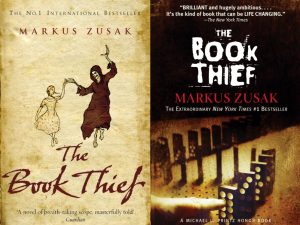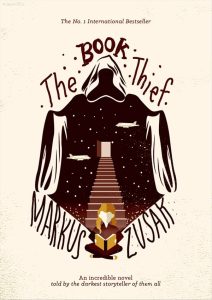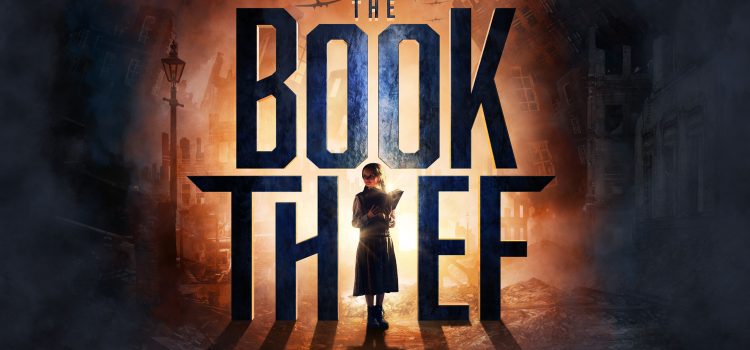
Unveiling Depth: Fred Wilson Dissects ‘The Book Thief’ for Book Lovers
Introduction
Meet Fred Wilson, a seasoned literary critic with a profound love for unraveling the intricacies of storytelling. Having spent years immersed in the world of books, Fred brings a unique and insightful perspective to one of literature’s gems—’The Book Thief’ by Markus Zusak. In this extensive exploration, Fred invites you to join him on a journey through narrative pilfering, character studies, and the timeless beauty of Zusak’s masterpiece.

The Art of Narrative Pilfering: Unraveling the Concept
Unraveling the Concept: Narrative pilfering, as elucidated by Fred Wilson, is the art of stealing not physical possessions but narratives, weaving them into a unique tapestry that captivates and resonates. It’s a literary heist that Markus Zusak masterfully executes in ‘The Book Thief,’ leaving readers in awe of his storytelling prowess.
How Markus Zusak Masters the Craft: Fred takes a closer look at Zusak’s narrative techniques, showcasing how the author skillfully borrows from various styles, genres, and perspectives to create a narrative that feels both familiar and refreshingly original. It’s a delicate balance that only a master storyteller like Zusak can achieve.
Fred Wilson’s Literary Lens: Background and Expertise
Background and Expertise: Fred Wilson’s journey into the world of literature is rooted in a passion for words and a keen analytical mind. With a background in literature and a career spent dissecting books, Fred’s expertise shines through as he approaches ‘The Book Thief’ with a discerning eye, ready to uncover its hidden treasures.
Approach to Analytical Reviews: Fred provides readers with insight into his approach to analytical reviews, emphasizing the importance of understanding the author’s intent, exploring thematic elements, and dissecting characters’ motivations. It’s a methodical approach that adds depth to his critiques and enhances readers’ appreciation for the literary work at hand.
Character Studies: A Fred Wilson Special
Leisel Meminger: A Protagonist’s Evolution: Fred delves into the heart of ‘The Book Thief,’ exploring the protagonist Leisel Meminger’s evolution throughout the narrative. He dissects Leisel’s growth, her struggles, and the impact of her journey on readers, offering a nuanced understanding of Zusak’s character development.
The Enigmatic Death: Rudy Steiner’s Impact: Rudy Steiner’s enigmatic death is a focal point for Fred as he explores its significance in the narrative. By dissecting Rudy’s character and the emotions surrounding his demise, Fred unveils the layers Zusak incorporates, turning ‘The Book Thief’ into a poignant exploration of life and loss.

Discussion Points for Book Clubs
Themes That Resonate: Fred curates a list of themes that resonate throughout ‘The Book Thief.’ From the exploration of humanity’s capacity for good and evil to the impact of war on innocence, each theme serves as a rich discussion point for book club members seeking a deeper understanding of Zusak’s narrative choices.
Questions to Stoke Debate: To facilitate engaging discussions, Fred provides thought-provoking questions that book clubs can explore. These questions delve into the moral dilemmas presented, the symbolism woven into the narrative, and the emotional impact of key moments, fostering a vibrant exchange of ideas among readers.
Intricacies Beyond the Pages
Setting and Atmosphere: Fred takes a moment to appreciate the role of setting and atmosphere in ‘The Book Thief.’ He highlights how Zusak’s vivid descriptions transport readers to Nazi Germany, creating an immersive experience that enhances the emotional impact of the narrative.
Symbolism That Echoes: Zusak’s use of symbolism is a key focus for Fred. From the significance of colors to the recurring motif of books, Fred unpacks the layers of meaning embedded in the text, showcasing how Zusak’s symbolism adds depth to the overall narrative.
Comparative Table: Analyzing Key Elements
Table: Comparative Analysis of ‘The Book Thief’
| Elements | Leisel Meminger | Rudy Steiner | Narrative Techniques | Themes Explored | Setting and Atmosphere | Symbolism |
|---|---|---|---|---|---|---|
| Character Development | Leisel’s growth and struggles | Impact of Rudy’s enigmatic death | Zusak’s narrative borrowing | Humanity, war, and innocence | Immersive descriptions of Nazi Germany | Colors, books, and recurring motifs |
| Narrative Techniques | Unique storytelling methods | Emotional resonance in key moments | Balancing familiarity and originality | Good and evil, sacrifice, and resilience | Transporting readers to the narrative | Layers of meaning in symbolic elements |
| Themes Explored | Capacity for good and evil in humanity | Loss and its impact on innocence | Impact of narrative pilfering | Moral dilemmas and ethical choices | Emotional resonance in key moments | Significance of colors and recurring motifs |
Fred’s Takeaway: Unforgettable Insights
Memorable Quotes and Passages: Fred shares memorable quotes and passages from ‘The Book Thief,’ allowing readers to savor Zusak’s prose and gain a deeper appreciation for the beauty of his language.
Why ‘The Book Thief’ Endures: In his concluding thoughts, Fred reflects on why ‘The Book Thief’ endures as a literary masterpiece. He explores the timeless elements that resonate with readers across generations, cementing its place in the canon of great literature.
Conclusion:
In this extensive exploration, Fred Wilson leaves no stone unturned, providing readers—especially fans of analytical book reviews and book club members—with a comprehensive understanding of ‘The Book Thief.’ Through the lens of narrative pilfering, character studies, and thematic exploration, Fred’s analysis serves as a literary guide, inviting readers to embark on a journey through the rich tapestry of Markus Zusak’s masterpiece.










